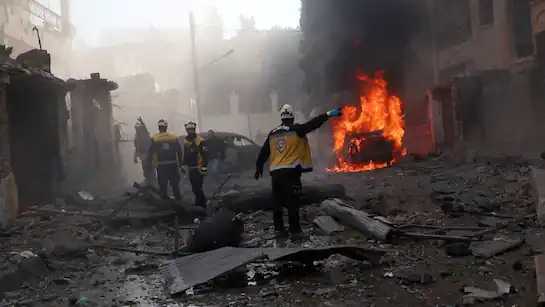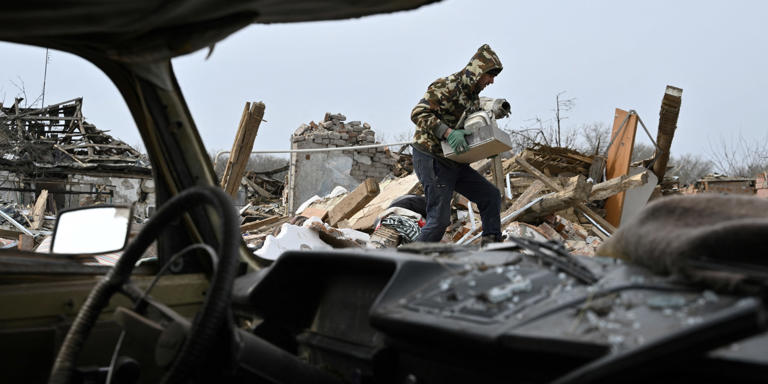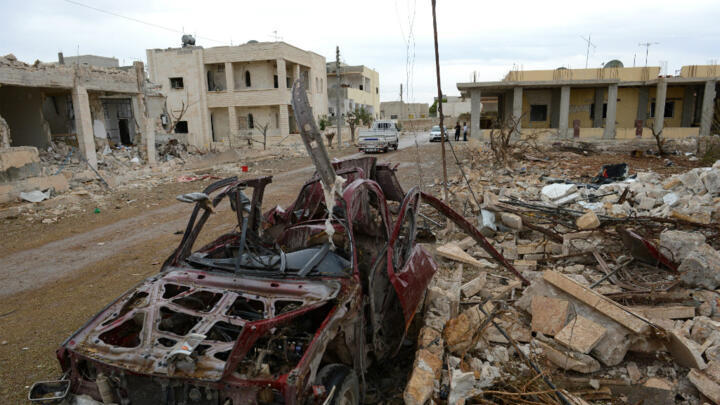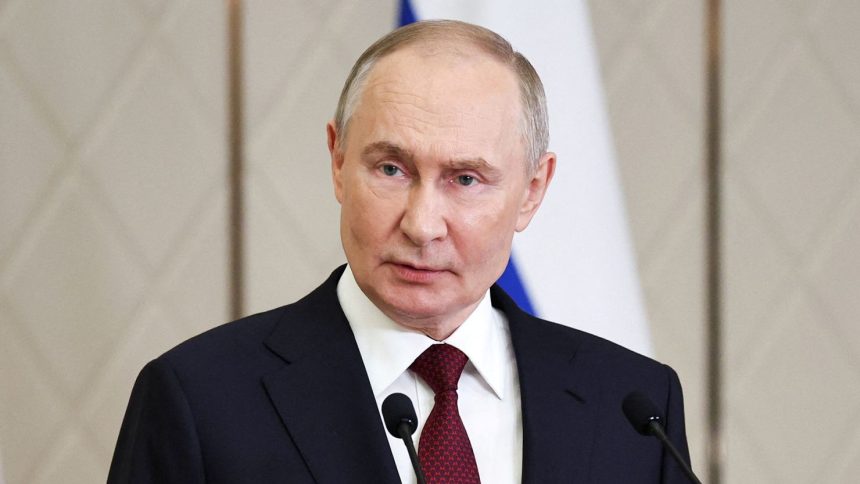In a dramatic turn of events, Russia has reportedly dismissed Sergei Kisel, the general in charge of its forces in Syria, following a significant insurgent advance in the war-torn city of Aleppo. This development marks one of the most substantial challenges to Syrian President Bashar al-Assad’s authority in years.
Russia, a critical ally of the Assad regime, has played a pivotal role in propping up the Syrian government throughout the country’s ongoing civil war. The dismissal of Kisel, 53, was first reported by the Rybar Telegram channel and the Voenny Osvedomitel (Military Informant) blog, both of which are known for their connections to the Russian defense ministry.
Reuters has reached out to the Russian defense ministry for confirmation, though no official statement has been released. Unverified reports suggest that Kisel will be replaced by Colonel General Alexander Chaiko, reflecting yet another reshuffle within Russia’s military leadership.

The insurgent advance into Aleppo represents the most significant threat to Assad’s control since 2016 when Russian-backed forces decisively captured the city. This recent offensive was led by a coalition of Turkish-backed secular armed groups and Hayat Tahrir al-Sham, an Islamist faction regarded as the most formidable opposition force.
READ ALSO: Michael Saylor to Microsoft: “Buying Bitcoin Makes More Sense Than Stock Buybacks”
Aleppo, once Syria’s largest city and a key economic hub, had been firmly under government control since the devastating 2016 siege. The current insurgent push signals a shift in the balance of power in the region, renewing concerns over stability in northwest Syria.
Kisel’s removal has been met with harsh criticism from prominent Russian military bloggers. Rybar and Voenny Osvedomitel expressed frustration with what they perceive as Kisel’s repeated failures. Previously, Kisel commanded Russia’s 1st Guards Tank Army during its campaign in the Kharkiv region of Ukraine.

In late 2022, Ukrainian forces drove Russian troops out in a swift counter-offensive, further tarnishing Kisel’s reputation.
Rybar commented that Syria has long been used as a “sandbox” for rehabilitating the reputations of underperforming generals, many of whom have faced setbacks during Russia’s so-called “special military operation” in Ukraine. “Apparently, he was supposed to reveal his hidden talents in Syria, but something got in the way again,” Voenny Osvedomitel wrote scathingly.
READ ALSO: XRP Surges 27%, Overtakes USDT and Solana in Market Cap Rankings
The spotlight has also turned to General Sergei Surovikin, nicknamed “General Armageddon” for his brutal tactics during earlier campaigns in Syria. Surovikin, once in charge of Russia’s military effort in Ukraine, was demoted last year amid allegations of complicity in a mutiny led by the Wagner mercenary group.

While there is no official confirmation of his involvement in this latest reshuffle, military bloggers have speculated about his potential return to Syria.
As of Sunday, the Syrian army announced it had recaptured several towns overrun by insurgents in recent days. This marks the first major offensive by rebel forces since March 2020, when a ceasefire brokered by Russia and Turkey temporarily halted hostilities in the northwest.
Turkey’s backing of opposition groups continues to complicate the dynamic, adding another layer of tension to the Syrian conflict. The resurgence of Hayat Tahrir al-Sham and its coalition of rebels underscores the fragile nature of the 2020 truce and the ongoing volatility in the region.
READ ALSO: CBN Unveils Comprehensive Guidelines for Foreign Exchange Market Reforms
Kisel’s dismissal is the latest in a series of unannounced changes within Russia’s military leadership, particularly since the start of the Ukraine conflict. These reshuffles reflect Moscow’s struggle to maintain effective command and control amid mounting challenges on multiple fronts.
For Assad’s regime, the loss of Aleppo—even temporarily—could erode confidence in Russian military support and embolden opposition forces. For Moscow, this setback is yet another reminder of the complexities and costs of its involvement in Syria’s civil war.

The insurgent advance into Aleppo and the subsequent dismissal of Sergei Kisel signal a critical juncture for both Russia and the Assad regime. As Moscow recalibrates its strategy and leadership in Syria, the long-term implications for the region remain uncertain.
With tensions high and no clear resolution in sight, the conflict in Syria continues to serve as a microcosm of broader geopolitical rivalries, where shifting alliances and power dynamics shape the future of the Middle East.
Reuters.

